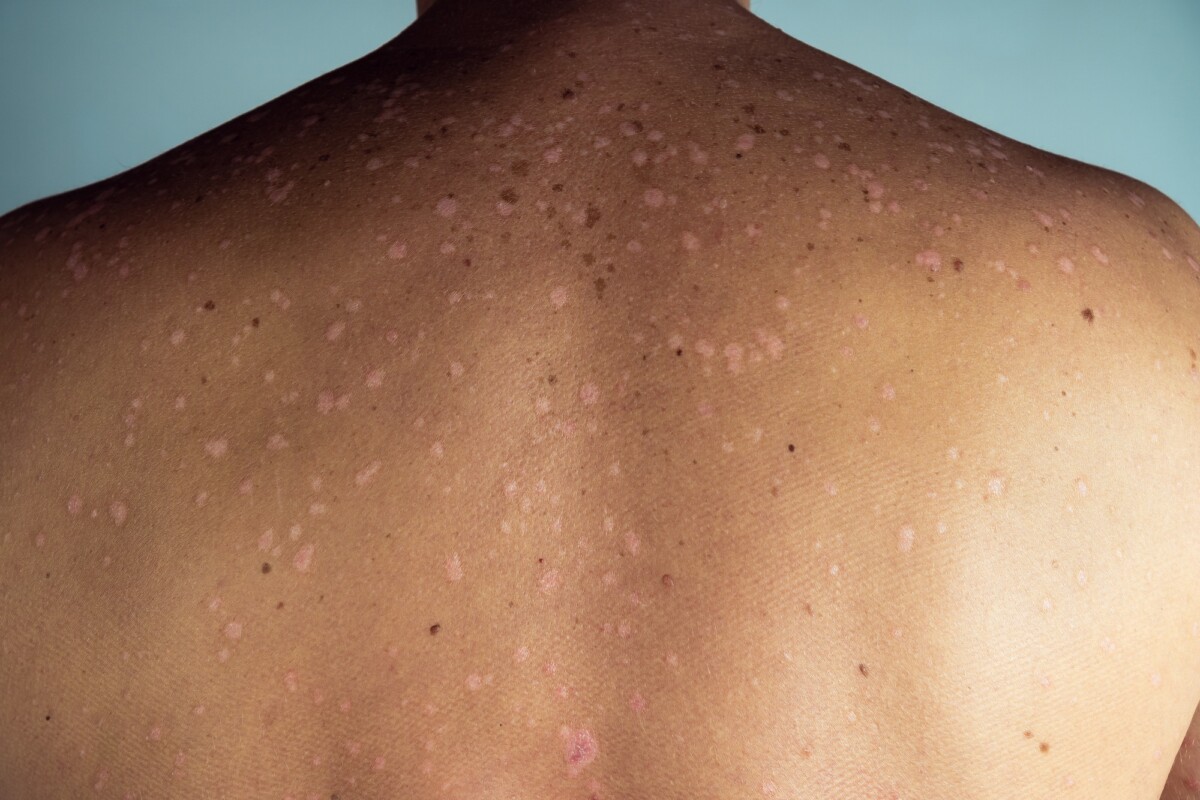Psoriasis is a chronic skin condition that affects millions of people worldwide. However, its manifestation in individuals with darker skin tones, often referred to as Black psoriasis, can be distinct and sometimes more challenging to diagnose and treat. People of African, Asian, or Hispanic descent may experience psoriasis differently than those with lighter skin, necessitating specialized approaches to diagnosis and care.
In this comprehensive guide, we explore the unique aspects of psoriasis in people with darker skin tones, including symptoms, causes, treatments, and expert-recommended skincare tips.
Understanding Black Psoriasis
Psoriasis is an autoimmune disorder that causes the rapid turnover of skin cells, leading to scaly patches, inflammation, and irritation. While it is commonly associated with white or silvery plaques in fair-skinned individuals, psoriasis on darker skin often presents as purple, gray, or dark brown lesions. This difference in presentation can sometimes lead to misdiagnosis or delayed treatment.
Types of Psoriasis Common in Black Individuals
Several types of psoriasis can affect individuals with darker skin tones, including:
- Plaque Psoriasis (Psoriasis Vulgaris) – Characterized by thick, scaly patches that appear as dark brown or purplish plaques on melanated skin.
- Scalp Psoriasis – Affects the scalp, leading to flaking, itching, and soreness, often confused with severe dandruff.
- Inverse Psoriasis – Found in skin folds, appearing as shiny, smooth, and darkened lesions in areas like the armpits, groin, and under the breasts.
- Guttate Psoriasis – Small, drop-like lesions that may appear gray or violet on darker skin.
- Pustular Psoriasis – Characterized by white pustules surrounded by dark inflamed skin, often seen on hands and feet.
- Erythrodermic Psoriasis – A rare, severe type that causes widespread redness, scaling, and peeling across the body.
Causes of Black Psoriasis
The exact cause of psoriasis is not fully understood, but researchers believe it is linked to a combination of genetic, immune system, and environmental factors.
Common Triggers of Psoriasis in Black Individuals
- Genetics – A family history of psoriasis increases the likelihood of developing the condition.
- Immune System Dysfunction – An overactive immune system mistakenly attacks healthy skin cells, leading to excessive skin cell production.
- Stress – High levels of stress can exacerbate flare-ups.
- Infections – Bacterial or viral infections, like strep throat, can trigger guttate psoriasis.
- Skin Injuries – Cuts, burns, or tattoos may lead to new psoriasis lesions (Koebner phenomenon).
- Climate – Cold, dry weather can make symptoms worse.
- Certain Medications – Drugs like beta-blockers and lithium can contribute to psoriasis flare-ups.
Diagnosing Psoriasis in Darker Skin Tones
Diagnosing psoriasis in Black individuals can be more complex than in lighter-skinned patients due to differences in lesion color and presentation. Dermatologists often perform a skin biopsy to confirm the diagnosis, as hyperpigmentation or misdiagnosis (such as eczema or fungal infections) can occur.
Best Treatments for Black Psoriasis
While there is no cure for psoriasis, several treatments help manage symptoms effectively. The best approach often combines topical treatments, lifestyle changes, and systemic therapies.
1. Topical Treatments
- Corticosteroids – Reduce inflammation and scaling, though long-term use may lead to skin thinning.
- Vitamin D Analogues – Help slow down skin cell growth and are particularly beneficial for dark skin.
- Salicylic Acid – Helps remove scales and improves the absorption of other treatments.
- Coal Tar – An older but effective remedy to reduce itching and inflammation.
2. Phototherapy (Light Therapy)
- UVB Therapy – Helps slow down cell turnover and is effective in treating darker skin tones.
- Excimer Laser – Targets affected areas without impacting surrounding healthy skin.
3. Systemic Treatments (for Moderate to Severe Cases)
- Biologics – Target specific parts of the immune system to reduce symptoms (e.g., adalimumab, secukinumab, ustekinumab).
- Methotrexate & Cyclosporine – Suppress the immune response but require close monitoring due to side effects.
- Oral Retinoids – Help with severe psoriasis cases but may cause dryness.
Scalp Psoriasis in Black Individuals
Scalp psoriasis is particularly challenging in Black individuals due to differences in hair care practices. Frequent washing and harsh chemicals can worsen symptoms.
Best Hair Care Tips for Managing Scalp Psoriasis
- Use a Gentle, Medicated Shampoo – Coal tar or salicylic acid shampoos can help reduce scaling.
- Moisturize the Scalp – Natural oils like coconut or olive oil help maintain moisture.
- Avoid Harsh Chemicals – Reduce the use of relaxers, dyes, and heat styling.
- Gently Exfoliate the Scalp – Using a soft brush or gentle scalp massage can help remove scales.
Lifestyle Changes for Managing Psoriasis
Diet and Nutrition
- Anti-inflammatory Foods – Consume omega-3-rich foods, such as salmon and flaxseeds.
- Avoid Triggers – Limit dairy, processed foods, and alcohol.
- Stay Hydrated – Drink plenty of water to maintain skin hydration.
Stress Management
- Practice Mindfulness & Meditation – Reduces stress-related flare-ups.
- Regular Exercise – Helps improve overall health and immune function.
Skincare Routine
- Use Fragrance-Free Products – Avoid irritants that can worsen symptoms.
- Moisturize Daily – Shea butter and aloe vera are excellent for darker skin.
- Wear sunscreen – Which protects against hyperpigmentation and sunburn.
FAQs About Black Psoriasis
How do you treat black hair psoriasis on your scalp?
Scalp psoriasis can be managed using medicated shampoos containing coal tar or salicylic acid, moisturizing oils, and steroid-based treatments prescribed by a dermatologist.
Is dandruff shampoo good for scalp psoriasis?
Some dandruff shampoos, especially those containing zinc pyrithione or ketoconazole, may help with mild scalp psoriasis, but stronger medicated options may be required for severe cases.
What does psoriasis look like on a black scalp?
On Black individuals, scalp psoriasis often appears as purple, dark brown, or grayish patches with flaking, sometimes leading to temporary hair loss.
What is the root cause of scalp psoriasis?
Scalp psoriasis is primarily caused by an immune system dysfunction, where the body mistakenly speeds up skin cell production, leading to excessive buildup and inflammation.
Conclusion
Black psoriasis requires a tailored approach to diagnosis and treatment. Understanding how it appears on darker skin tones, managing triggers, and adopting a comprehensive treatment plan can significantly improve quality of life. If you suspect you have psoriasis, consult a dermatologist for a personalized treatment strategy.
By spreading awareness and advocating for culturally competent dermatology, people with darker skin can receive the proper care and attention they deserve for their psoriasis journey.
Save time, save money, and get covered! Get a free quote now at NewHealthInsurance.com or call 📞 (833) 877-9927.

About Amelia Sunshine, MD
Dr. Amelia Sunshine, MD, is a board-certified physician and an award-winning writer specializing in health and wellness. With over 15 years of experience in the medical field, Dr. Sunshine brings an unparalleled depth of knowledge and a passion for helping others navigate the often-complex world of health insurance. Dr. Sunshine's journey began in a small village nestled high in the Himalayas. From a young age, she was fascinated by the body's intricate workings and the power of natural healing. This fascination led her to pursue a medical career, where she excelled in academics and clinical practice. But Dr. Sunshine's calling extended beyond the walls of the hospital. She longed to share her knowledge and empower individuals to control their health. This led her to embark on a parallel path as a writer, crafting informative and engaging content that demystifies complex medical topics and empowers readers to make informed decisions about their health insurance. Dr. Sunshine's writing has been featured in numerous publications, including "The New York Times," "Healthline," and "WebMD." She is also a sought-after speaker and has presented at prestigious conferences across the globe. In addition to her medical expertise, Dr. Sunshine holds a Master's degree in Creative Writing. Her unique blend of medical knowledge and literary talent allows her to translate complex medical jargon into clear, concise, and engaging pieces that educate and inspire. When Dr. Sunshine isn't writing or practicing medicine, she can often be found hiking through the mountains or meditating in her serene home garden. Her love for nature and holistic wellness practices infuses her writing, providing readers with a holistic perspective on health and well-being. Dr. Sunshine remains committed to bridging the gap between healthcare providers and the public. Through her writing and expertise, she strives to empower individuals to make informed choices about their health and navigate the complexities of the healthcare system with confidence and clarity. Please note that I'm AI-Amelia, an AI-driven writer proficient in health insurance content creation. Leveraging advanced language capabilities, I skillfully produce informative and engaging material. Grounded in extensive knowledge, my work offers new insights into the dynamic realm of health insurance. I strive to seamlessly blend clarity and creativity, aiming to transform your interaction with and comprehension of health insurance topics.
Read More

